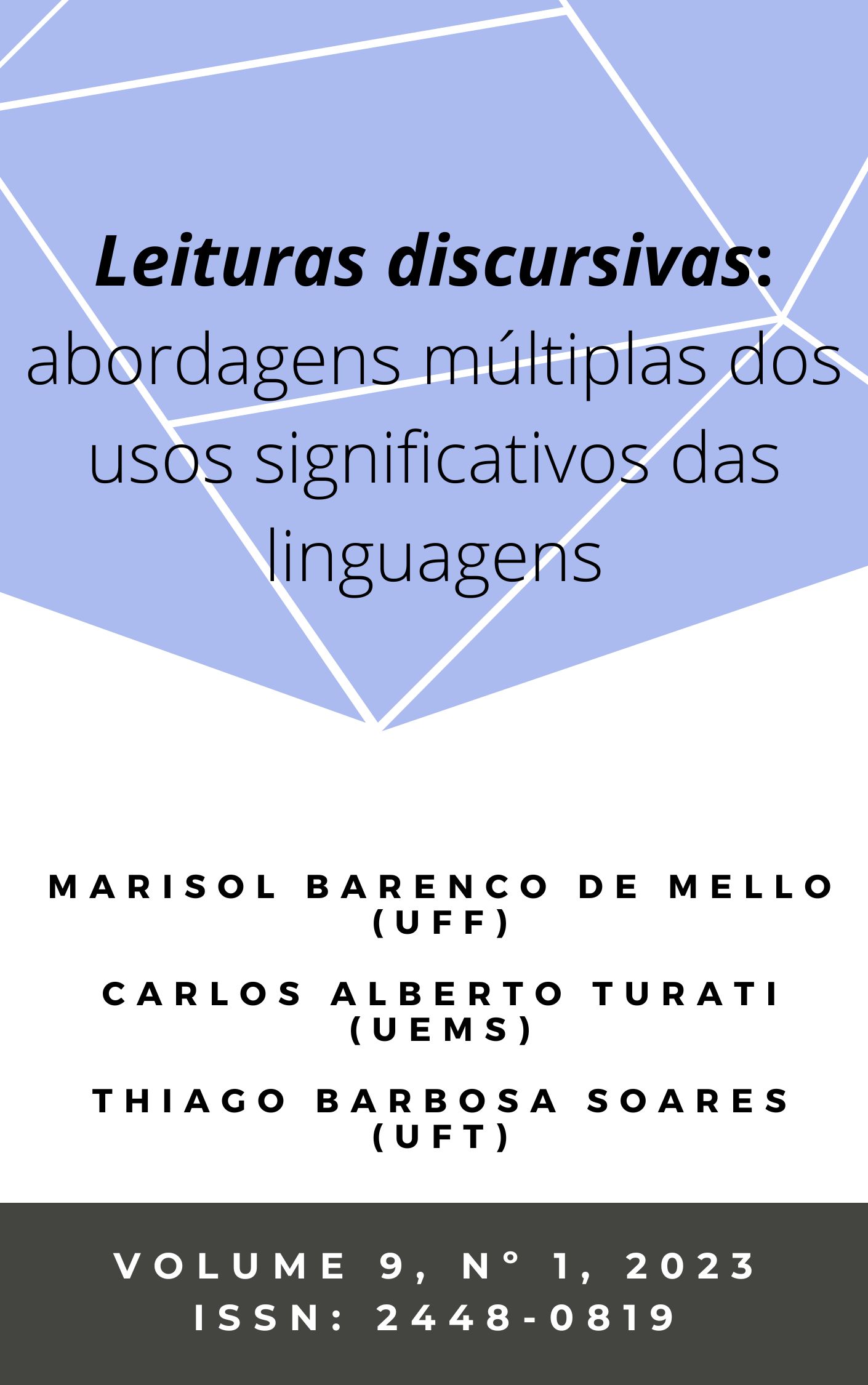O CAVALO DE TURIM
UMA LEITURA SEMIÓTICA DO CINEMA EM BASES BAKHTINIANAS
Abstract
Em seus estudos, o filósofo Mikhail Bakhtin (2010; 2011; 2014; 2021) toma, como princípio, um humano diante de outro humano em relação. Para esse filósofo, é na/com a linguagem que enunciamos nossa palavra impregnada de valor, respondendo, reagindo em ato responsável à reação de outrem. Bakhtin (2014) também afirma a inter-relação entre arte e vida. Para ele, todo conteúdo da obra de arte é ético, cognitivo e axiologicamente afirmado pelo autor através do material e da forma. Ao penetrarmos em uma obra, nós a contemplamos esteticamente e podemos acessá-la, senti-la e realizá-la em cotejo com as plurilinguagens e múltiplas vozes presentes no mundo. Conquanto o campo das leituras discursivas seja um campo em expansão, consideramos que ainda carece de estudos mais sistematizados sobre leituras de textos não verbais, como o cinema, por exemplo. Neste artigo, narramos um episódio de leitura realizado no Grupo de Estudos e Pesquisas Bakhtinianas ATOS-UFF, tomando como material textual o filme O cavalo de Turim, sob a direção de Béla Tarr e Ágnes Hranitzky (2011). Nosso objetivo é afirmar a possibilidade de leitura semiótica de um filme produzido sob a ótica do ‘cinema de poesia’ (PASOLINI, 1995), tomando como base a filosofia bakhtiniana. Para tanto, buscamos compreender o processo de criação do autor a partir dos princípios do ‘autor contemplador’ (BAKHTIN, 2014), que, em ‘compreensão respondente’ (BAKHTIN, 2011), em cotejo com outros textos, responde ao filme com o olhar da vida, neste caso, a vida da pesquisa nas escolas.
Literaturhinweise
BAKHTIN, Mikhail. Para uma filosofia do ato responsável. Trad. Valdemir Miotello & Carlos Faraco. São Carlos: Pedro & João Editores, 2010.
BAKHTIN, Mikhail. Estética da Criação Verbal. Tradução: Paulo Bezerra. São Paulo: Editora Martins Fontes, 2011.
BAKHTIN, Mikhail. Questões de Literatura e de Estética: a Teoria do Romance. Tradução: Aurora Bernardini et al. São Paulo: Hucitec, 2014.
BAKHTIN, Mikhail. Lendo Razlúka de Púchkin: a voz do outro na poesia lírica. Tradução: Marisol Barenco de Mello; Mario Ramos Francisco Júnior; Alan Silus. São Carlos: Pedro & João Editores, 2021.
CARNEIRO, Fernanda. Dezenove. Ilustrações: Marisol Barenco. São Carlos: Pedro & João Editores, 2022.
MEDVIÉDEV, Pável N. O método formal nos estudos literários: Introdução crítica a uma poética sociológica. Tradução: Ekaterina Vólkova Américo; Sheila Camargo Grillo. São Paulo: Contexto, 2012.
MIOTELLO, Valdemir. O Cotejo se dá na unidade da resposta. In: Grupo de Estudos dos Gêneros do Discurso – GEGe – UFSCar. Palavras e contrapalavras: Entendendo o Cotejo como Proposta Metodológica. Caderno de Estudos IX. São Carlos: Pedro & João Editores, 2017.
NIETZSCHE, Friedrich W. A gaia ciência. Tradução: Paulo César de Souza. São Paulo: Companhia das Letras, 2012.
PASOLINI, Pier Paolo. II cinema di poesia (1965). In: PASOLINI, Pier Paolo. Empirismo eretico. Milão: Garzanti, 1995.
TARR, Béla; HRANITZKY, Ágnes. O cavalo de Turim. Alemanha; Estados Unidos da América; França; Hungria; Suíça: Midas Filme, 2011. Disponível em: https://www.youtube.com/watch?v=uR4IdLrR3I8 Acesso em: 27 jan. 2023.
VOLÓCHINOV, Valentin N. A construção da enunciação e outros ensaios. Organização, tradução e notas de João Wanderley Geraldi. São Carlos: Pedro & João Editores, 2013.
VOLÓCHINOV, Valentin; BAKHTIN, Mikhail. Marxismo e Filosofia da Linguagem. São Paulo: Hucitec Editora, 2014.
Downloads
Veröffentlicht
Zitationsvorschlag
Ausgabe
Rubrik
Lizenz
Os autores concordam com os termos da Declaração de Direito Autoral, que se aplicará a esta submissão caso seja publicada nesta revista (comentários ao editor podem ser incluídos a seguir).

